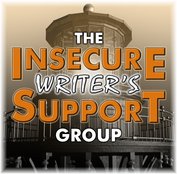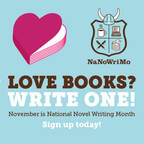- Do I love this book?
- Will I reread it?
- Is it sentimental or hard to find through the library?
- Can I use it to teach (as an example to others in a one of my workshops) or learn (for myself as a mentor text)?
How do you organize your shelves?
|
During my latest home organization efforts, I saved the hardest category for last: books. For many people (especially writers!), the idea of getting rid of books is a difficult subject. In early 2019, there was even a Marie Kondo controversy about the idea of limiting the number of books in your home. Can we really have too many books? According to "Why You Should Surround Yourself With More Books Than You'll Ever Have Time To Read", no. But there came a point when my shelves were overcrowded, and I bought multiples of the same book because I didn’t know I already owned a copy. It was time to clear some out. The criteria I used during my office cleaning:
Many organizations accept used books, so they’re relatively easy to donate. You can also organize a swap event with book-loving friends. (We once hosted a children’s party where each kid brought a few books and they took turns picking “new” ones. They even decorated bags to carry their treasures home.) Sorting through hundreds of books can be a tough process. But now that I’ve finished, I’m happy to have some space on my shelves for new stories. And while I admire shelves arranged by color, I use categories like young adult, middle grade, adult nonfiction, or even narrative POV (see below). When I finished, I treated myself to this fun bookend: What criteria do you use to donate books?
How do you organize your shelves? NaNoWriMo stands for National Novel Writing Month, and it's a time that creatives come together with the common goal of writing 50K words during the month. This leads to the monthly IWSG blog hop question:  Have you ever participated in National Novel Writing Month? If not, why not? Thank you to Alex Cavanaugh for founding the Insecure Writers Support Group, and to this month’s co-hosts, Diedre Knight, Douglas Thomas Greening, Nick Wilford, and Diane Burton.  I've participated in NaNoWriMo several times. It's great to feel a sense of community while writing, knowing that so many others are tapping into their creativity, too. I even served as a coach in 2020 and shared five organizational tips to help during November. This year, rather than track my wordcount, I'm going to track my revision hours. If you're interested in using NaNoWriMo for a project other than 50K novel words, check out So You're A NaNoWriMo Revision Rebel by Becca Spence Dobias or How to Break the Rules for the Best NaNoWriMo Ever by Sue Weems. Both articles provide ideas for making the month work best for you. For more inspiration, check out these pep talks on the NaNoWriMo site. Whether it's words in a new novel, creating a series of smaller projects, or revising an existing draft, there's still time to join the NaNoWriMo community and crush your creative goals. Wishing you a productive November!
|
JOIN NOW!
Sign up for Yvonne's newsletter for exclusive content, book news, and other occasional author goodies. Archives
June 2025
Categories
All
|